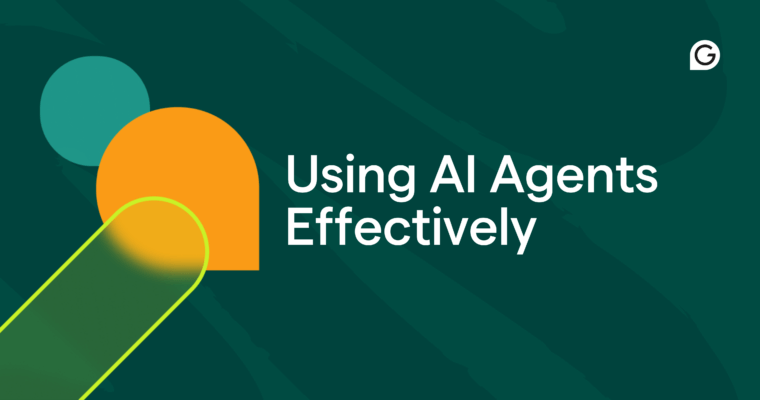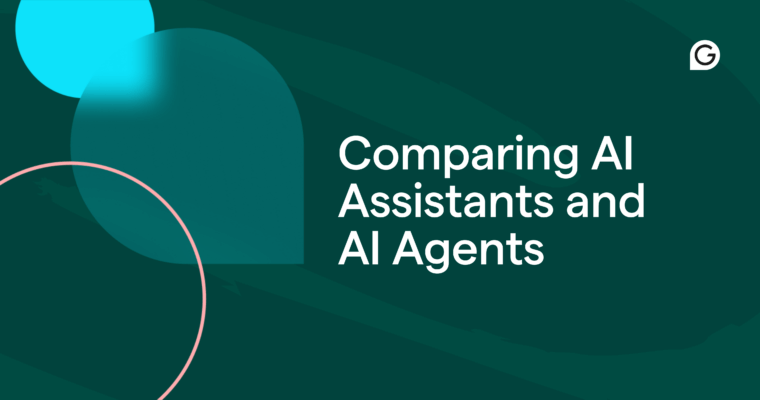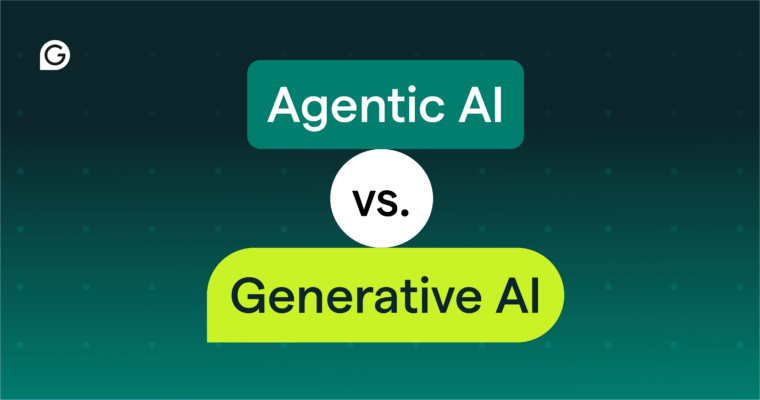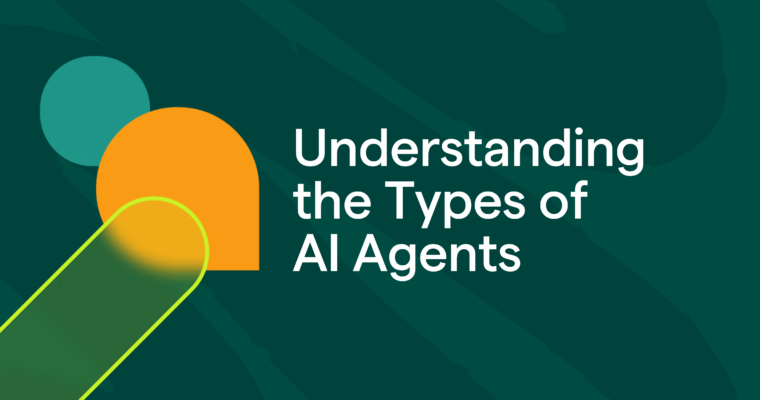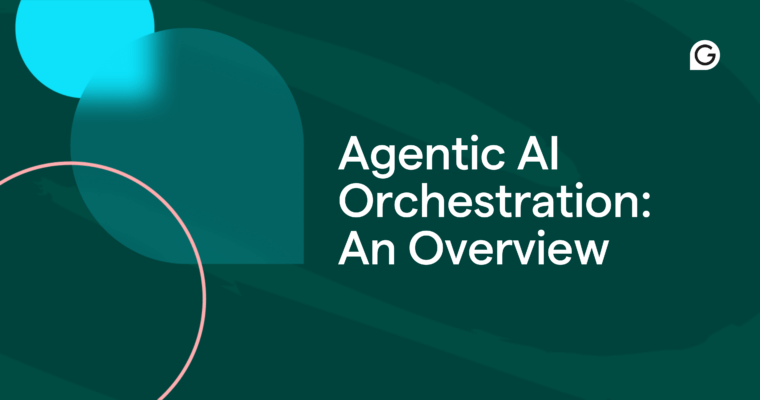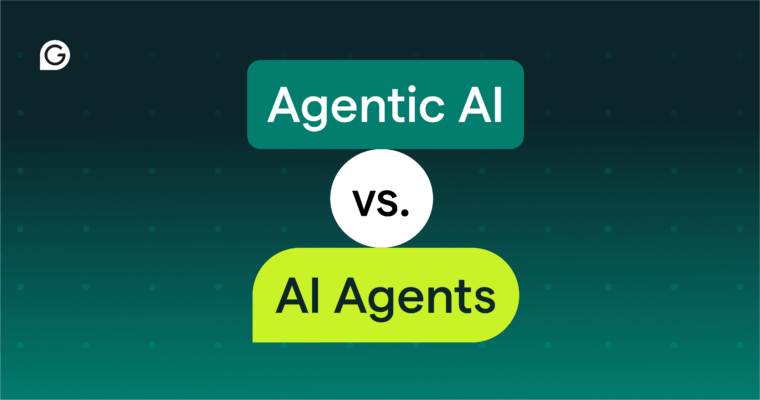
Content marketing is essential for building brand awareness, driving organic traffic, and nurturing customer relationships—but consistently producing high-quality content takes time, effort, and strategic thinking. That’s where artificial intelligence (AI) comes in. From content planning to creation, distribution, and performance analysis, AI can help streamline your workflow, surface new insights, and support more effective, data-driven decisions.
In this guide, we’ll walk through how to use AI across every stage of content marketing, plus the tools, benefits, and limitations to keep in mind as you put it into practice.
Table of Contents
What is AI for content marketing?
AI for content strategy and planning
AI for content distribution and audience reach
AI for SEO and content optimization
AI for performance tracking and analytics
Pros and cons of AI for content marketing
Best AI tools for content marketing
AI for content marketing: Closing thoughts
What is AI for content marketing?
AI for content marketing refers to using artificial intelligence to simplify and enhance how you plan, create, and manage content. These tools can help with tasks like outlining articles, optimizing headlines for SEO, and analyzing performance, so you spend less time in spreadsheets and more time creating.
AI doesn’t replace content marketers—it supports them. It can spark ideas, speed up drafting and editing, tailor messaging for different audiences, and even recommend where and when to publish. The goal isn’t to automate creative work but to remove the friction around it.
In the sections that follow, we’ll break down how AI supports each stage of the content marketing process, from strategy and creation to distribution, optimization, and performance tracking.
AI for content strategy and planning
A solid content strategy is the foundation of effective content marketing, but building one can be time-consuming and resource-intensive. AI can help lighten the load by turning data into direction. From identifying audience interests to spotting gaps in your current content, AI tools can help you create a more focused, relevant, and scalable content plan.
Here are a few ways AI supports content strategy and planning:
- Topic and keyword discovery: AI can surface trending topics, high-performing keywords, and content gaps based on competitor analysis or audience behavior. Instead of guessing what to write about, you can prioritize content that aligns with search demand and audience intent.
- Audience and persona insights: Some tools analyze social, behavioral, or demographic data to identify what your audience cares about, giving you new ideas as to how to tailor content by audience segment.
- Content calendar suggestions: AI can recommend what to publish and when based on engagement trends or seasonal interest, helping you build a smarter editorial calendar with less manual guesswork.
- Competitive analysis: With AI, you can scan competitors’ content to see what’s performing, how frequently they publish, and where there may be opportunities to stand out.
While AI can’t build your entire strategy from scratch, it can give you the data and directional input to plan more confidently. When combined with your brand goals and subject-matter knowledge, AI becomes a strategic shortcut, not a replacement for the strategy itself.
AI for content creation
AI can make the content creation process faster and more manageable. Whether you’re writing a blog post, a YouTube video script, or an Instagram caption, AI can help brainstorm ideas, draft copy, and improve the quality of your writing with less manual effort.
Here are a few common ways AI supports content creation:
- Drafting content based on prompts: Some AI writing tools, like Grammarly, can generate a rough draft from just a short input—helpful when you need to get started quickly.
- Editing and rewriting: AI can assist with rephrasing, simplifying, or expanding your content, depending on your goals.
- Tone and clarity improvements: Tools like Grammarly provide real-time suggestions to adjust tone, enhance readability, and ensure consistency across different content types.
- Repurposing existing content: AI can help reformat or condense content for different channels, like turning a white paper into a LinkedIn update or an email.
- Scaling content across formats: Some tools, like Grammarly, can break down long-form content into bite-sized assets—like social media posts, email sequences, or short-form video scripts—so you can extend the life and reach of each piece with minimal extra effort.
- Humanizing content: Grammarly’s AI humanizer can help polish AI-generated text—enhancing clarity, tone, and flow to create writing that feels natural, relatable, and engaging to your readers.
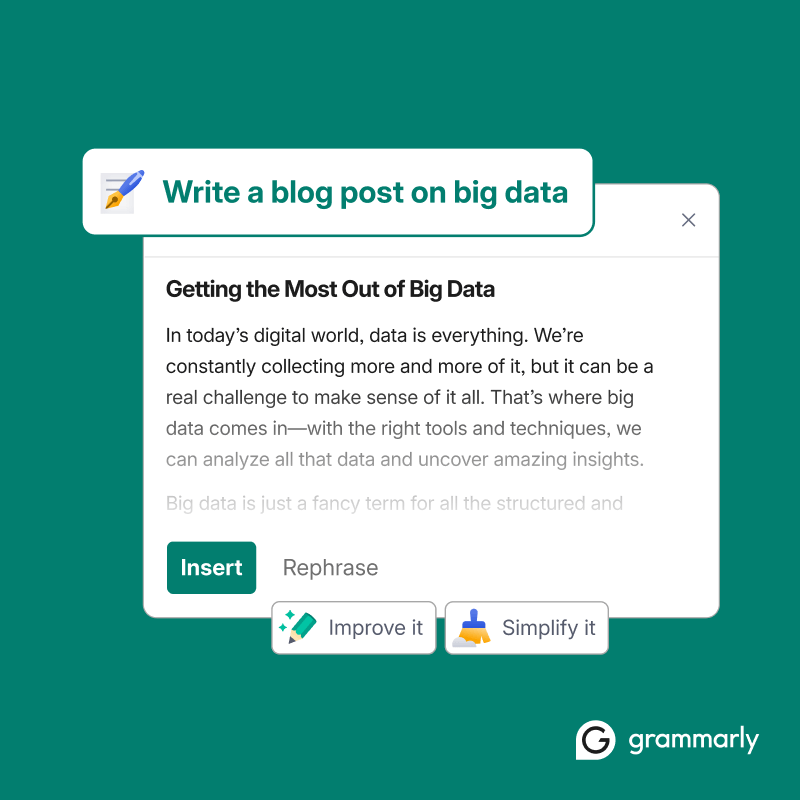
AI for content distribution and audience reach
Optimizing content distribution with AI
Creating great content is only half the battle—getting it in front of the right people is just as important. AI can help you distribute content more effectively by identifying where, when, and how to reach your audience.
Here’s how AI supports smarter content distribution:
- Optimal timing: AI-powered tools can analyze audience behavior to recommend the best times to publish content on different platforms for maximum visibility and engagement.
- Channel selection: Some tools suggest which platforms or formats are best suited for a specific piece of content, helping you tailor your distribution strategy.
- Audience targeting: AI can segment your audience based on behavior, preferences, or demographics—so you can deliver more relevant content to different groups.
- Content amplification: AI can assist with paid promotion by optimizing audience targeting and budget allocation to boost your top-performing content.
- Personalized content delivery: Some AI tools can dynamically tailor content variations to different audience segments—adjusting messaging, headlines, or calls to action based on user behavior or intent.
AI for SEO and content optimization
SEO is a key part of any content strategy—and AI can help you optimize content more effectively without relying on manual research or guesswork.
Here’s how AI supports SEO and content optimization:
- Keyword research: AI tools can identify high-impact keywords based on search volume, competition, and relevance to your content.
- On-page optimization: AI can suggest improvements to titles, meta descriptions, headers, and internal links to boost search performance.
- Content structure and readability: Some tools analyze your content’s flow, paragraph length, and formatting to make it more scannable and user-friendly.
- Search-intent alignment: AI can help ensure your content matches what users are actually looking for—whether they’re seeking information, making a purchase, or comparing options.
Used thoughtfully, AI can streamline your SEO workflow and help you publish content that’s not only valuable to your audience but also ranks better in search results.
AI for performance tracking and analytics
Knowing how your content performs is essential to improving results—and AI can make that process faster, clearer, and more actionable. Instead of manually digging through spreadsheets, AI tools can help you track what’s working, what’s not, and where to focus next.
Here’s how AI supports performance tracking:
- Real-time insights: AI can analyze engagement metrics across platforms as they happen, giving you a clearer picture of how your content is performing.
- Automated reporting: Many tools summarize your content’s performance in easy-to-read dashboards or reports, saving time and improving visibility.
- Content-specific recommendations: Some tools go beyond the numbers and suggest concrete improvements, like optimizing titles, adjusting format, or posting at different times.
- Predictive analytics: AI can identify patterns and trends over time to help you anticipate what types of content are likely to perform best in the future.
By turning raw data into meaningful insights, AI enables you to refine your strategy continuously, so every piece you publish is more effective than the last.
Pros and cons of AI for content marketing
Like anything, AI has its advantages and limitations. Here’s a quick look at the trade-offs to consider when determining if and how to start using it in your content marketing workflow:
Pros of AI for content marketing
- Faster content production: AI can draft, outline, and repurpose content to save time.
- Data-driven insights: AI tools help surface trends, suggest topics, and guide strategy.
- Consistent tone and style: Tools like Grammarly keep your brand voice clear across channels.
- Performance optimization: AI recommends SEO tweaks and flags underperforming content.
- Less manual work: Tasks like keyword research, formatting, and headline testing can be automated.
Cons of AI for content marketing
- Lacks originality and nuance: AI can’t replicate human creativity, voice, or perspective.
- Can generate inaccurate information: AI tools may include outdated or incorrect facts, so everything should be fact-checked.
- Potential for unintentional plagiarism: AI may produce content that closely resembles existing sources, which could lead to plagiarism or originality issues.
- Needs human oversight: AI is most effective when paired with human judgment, creativity, and review—it’s a support system, not a set-it-and-forget-it solution.
- Ethical and compliance concerns: AI models can sometimes reflect biases from their training data or unintentionally reproduce existing content. To use AI responsibly, marketers should fact-check outputs, disclose AI use when appropriate, and use tools like Grammarly’s AI detector and plagiarism checker to help ensure originality and transparency.
Best AI tools for content marketing
The right AI tools can help streamline your content marketing process—from ideation and writing to optimization and performance tracking. Here are three standout options that support different stages of your process:
For content creation and refinement: Grammarly
Grammarly is a powerful AI assistant that helps you craft clear, consistent, and engaging content across formats. Whether you’re writing blog posts, social captions, or email copy, Grammarly can generate first drafts from simple prompts and offer real-time suggestions to improve tone, clarity, and structure. It also helps maintain a consistent brand voice and ensures your content is polished and mistake-free before publishing.
Here are some ways Grammarly can support your content marketing workflow:
- Generate first drafts from a short prompt
- Refine tone and style to match your brand voice and audience
- Improve clarity and structure for better readability
- Spot grammar, spelling, and punctuation issues in real time
- Suggest word choice and phrasing improvements to strengthen your message
- Ensure consistency across different content types—from blog posts to social copy
- Check for plagiarism and detect AI-generated content to help maintain originality and transparency
For keyword research and SEO optimization: Semrush
Semrush uses AI and data-driven insights to support your content strategy and SEO efforts. You can identify high-value keywords, analyze competitor content, and optimize your writing for search performance. Its content optimization tools suggest improvements based on readability, keyword usage, and user intent—making it easier to create content that ranks and converts.
For content strategy and topic planning: MarketMuse
MarketMuse helps you plan and prioritize content based on topic relevance, competitive gaps, and content quality. Its AI analyzes your existing content and suggests what to create or update to improve topical authority. It’s especially useful for building out a content roadmap that’s aligned with audience interests and search demand.
AI for content marketing: Closing thoughts
AI is changing the way content marketing gets done—helping marketers plan more strategically, create faster, and make better decisions based on data. From drafting blog posts to optimizing for SEO and tracking performance, AI can support every stage of the process.
But while AI can simplify the workflow, it doesn’t replace your voice, creativity, or expertise. The best results come from using AI as a tool—not a shortcut. When paired with thoughtful strategy and strong messaging, AI helps you do more of what matters: creating content that informs, engages, and drives results.
Curious to see how AI can elevate your content marketing? Give Grammarly a try to generate high-quality drafts, fine-tune your messaging, and keep your content sharp, consistent, and on-brand.
AI for content marketing FAQs
How does AI improve content marketing?
AI improves content marketing by streamlining strategy, personalizing content, optimizing distribution, and analyzing performance. It helps identify trends, predict audience behavior, and automate tasks like scheduling and reporting, so marketers can focus more on creativity and storytelling.
What is the best AI tool for content creators?
For content creators looking to work more efficiently without sacrificing quality, Grammarly is one of the best AI tools. It can help you generate ideas, draft content from a prompt, and fine-tune your writing for tone, clarity, and consistency. Whether you’re writing blog posts, social captions, or email copy, Grammarly helps ensure your content is polished, on-brand, and ready to publish, plus it has built-in tools for grammar, style, and even plagiarism checking.
What is the best AI tool to use for marketing?
It depends on your goals. For content creation, Grammarly is a top pick—it helps generate drafts, refine tone, and keep your messaging consistent, with built-in plagiarism checking and AI detection. For SEO and research, Semrush is a strong choice, while AdCreative.ai is great for AI-powered ad design. Choose tools that align with the specific areas of your marketing you want to improve.
Will AI replace human content marketers?
While AI plays a powerful role in enhancing various aspects of content marketing, it cannot replace the human touch that defines exceptional content marketing. Creativity, strategic thinking, and brand storytelling are irreplaceable elements that set brands apart, build emotional connections with audiences, and drive long-term engagement. AI lacks the ability to understand nuanced emotions, cultural contexts, and deep brand narratives in the same way humans do.

